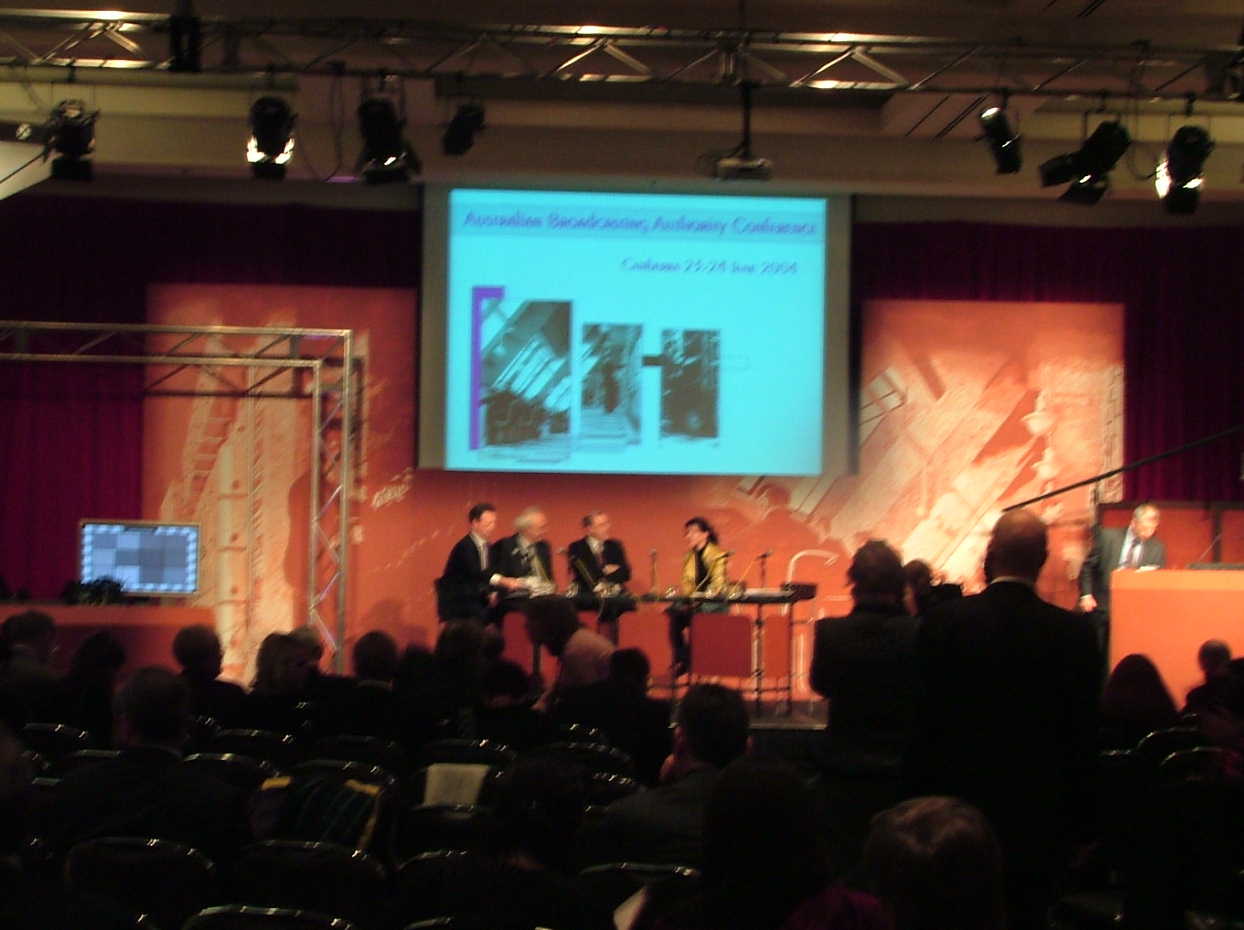The acting head of the Australian Broadcasting Authority, Lyn Maddock, has opened the ABA’s conference in Canberra.
She has told conference delegates the ABA has “come through a somewhat tumultuous year.”
In her opening speech, Maddock outlined the key projects, conducted by the ABA over the past year. They include planning and rollout for Digital TV; blackspot planning; and significant growth of commercial and community radio licences.
She said the ABA has now “paused” to allow the industry to “settle,” and to enable the ABA to concentrate on its merger with the ACA, which will happen in the middle of next year.
Maddock also foreshadowed that, as a result of recent enquiries into 2GB, 2UE, 5AA, Groove FM Perth and others, the ABA is likely to introduce ‘audits’ of compliance for broadcasters.
She said the ABA has completed its first audit, of licence fees, and plans to audit other “serious non-visible” areas where there could be potential problems. The emphasis, she said, is on identifying issues before they become problems, so that broadcasters and the regulator can continue to enjoy a “successful co-regulatory relationship [and] open dialogue.”
Following Maddock’s opening, Former PBL Executive, Peter Yates, analysed “the public policy framework for the tv industry”, using a combination of economic and ethical modelling.
Yates concluded that the Australian tv market is, in economic terms, a “market failure,” where there is not enough population to profitably sustain the amount of free to air television per head of population. He said, then, when there is a “market failure” in economics, a number of external economic factors come into play to sustain the market such as: regulation for the public good, monopolies and merit goods (public services that have no benefit to any one individual, but benefit the whole group).
After the lesson in economics, he overlaid a number of ethics models to analyse why these prop-up decisions had been made rather than letting the market fail.
He concluded that the tv industry in Australia is not an open market and that the number of ways regulators over the years have dealt with the market failure has made Australia’s tv regulatory regime “highly complex.” His view is that regulators should “properly frame” their understanding of the market before making decisions that will have long term consequences.
Asked from the floor whether the same analysis could be applied to the radio industry, Yates said ‘yes, it can’.
After Yates’ paper, a panel discussion on ‘The Industry’s Future and the Government’s Part in it’ saw various contributions from a range of experts including:
Malcolm Adler from KPMG discussed the investment community’s need for Return on Investment, saying: “Issues affecting capital efficiency [for return on investment] include mandated investments such as has happened in digital tv (and in future presumably radio); outsourcing options (such as contracting out the operation of transmission towers); and infrastructure sharing (such as back-off function sharing).”
He said we have too many free to air tv stations per head of population in Australia, and probably too many radio stations.
ACA Acting Chairman Bob Horton told the conference that broadband will challenge free to air radio and tv services by allowing other players to provide tv and radio style services through broadband combined with wireless internet.
A sceptical Mark Carnegie, merchant banker and chairman of Singleton Communications disagreed with Horton saying: “I don’t understand any of that technology stuff he was talking about, all I know is that whenever anyone talks about new technology they lose their shirt… We have invested in traditional old fashioned media and we are making profits… all the money’s still in the old media.”
Carnegie used his time on the stage of the ABA conference also to push his own company’s bid to buy into tv, advocating the allocation of a 4th commercial tv licence.

“We need to redress the regulatory failure [of high Australian Content] by regulating to force companies to fulfil their obligations… If we won the 4th tv licence we would put on 100% Australian content.”
He was also sceptical of the ability of digital tv to make any profits from advertising in the short term, rejecting the possibility of his group buying a digital-only licence.
“My group is willing to write a very big cheque to get into the main game,” he said.
Conference program below.

